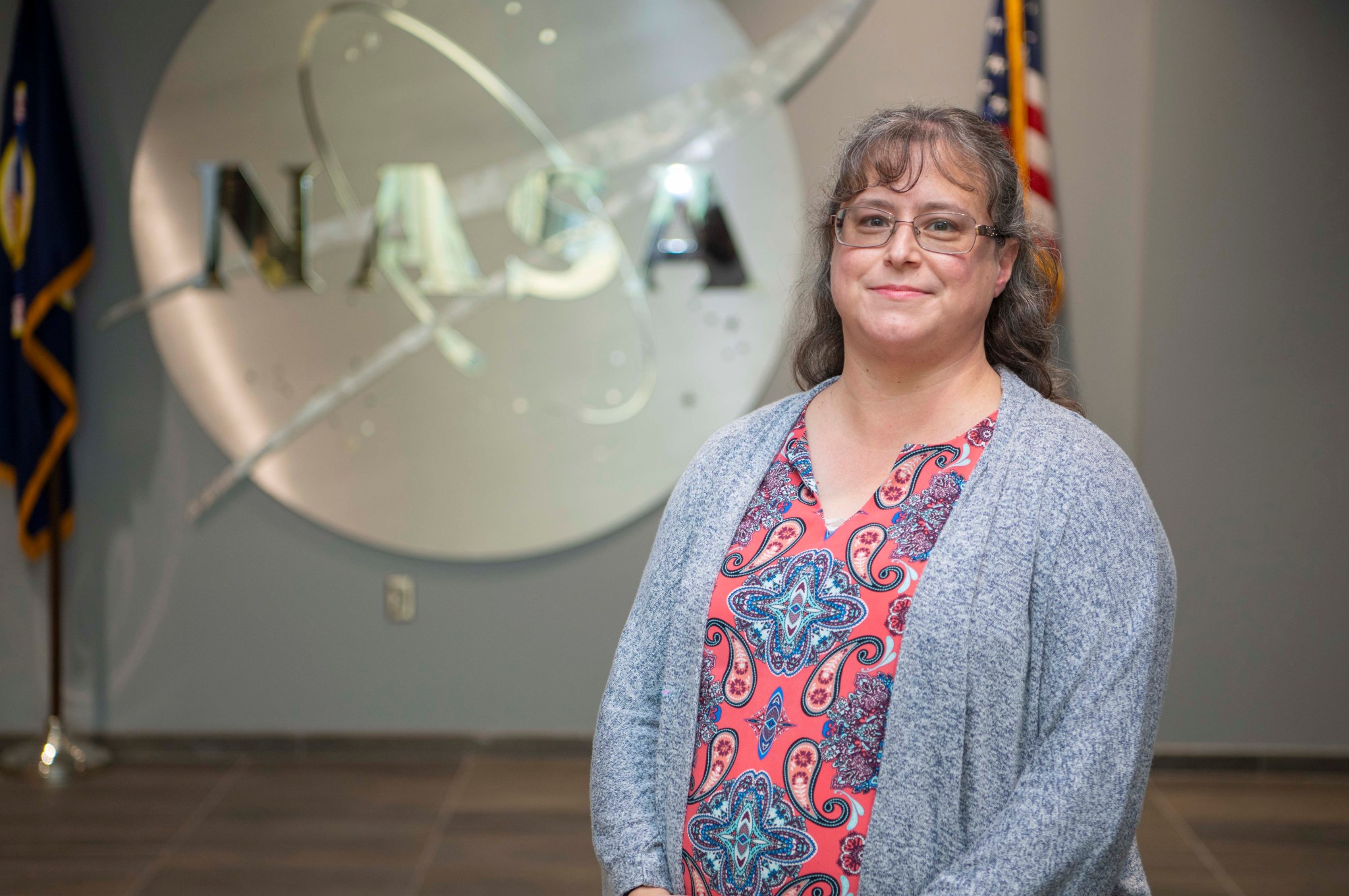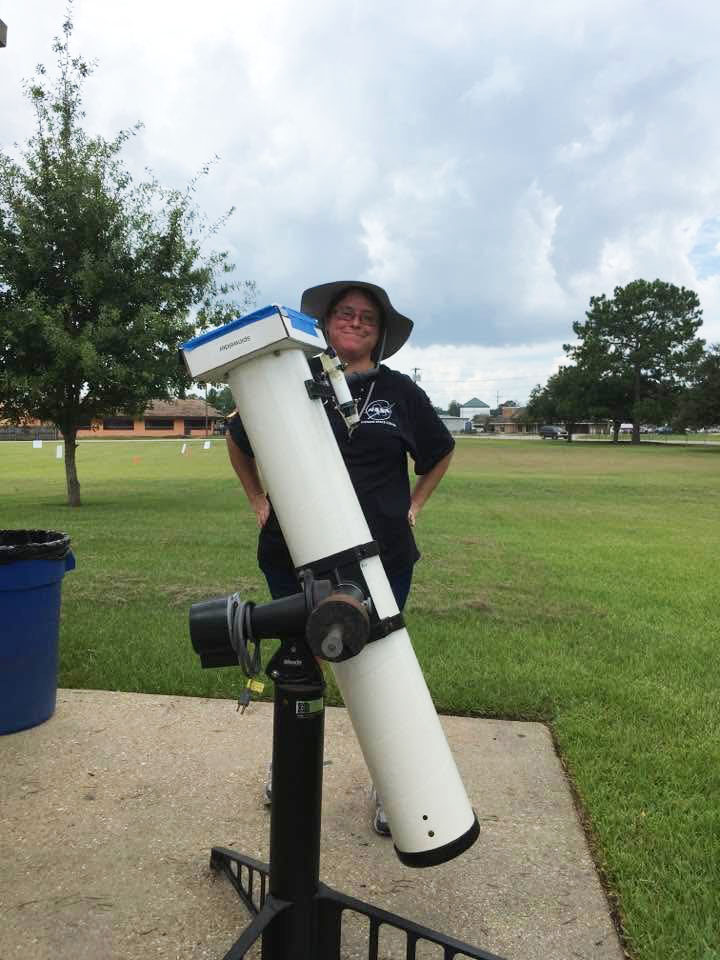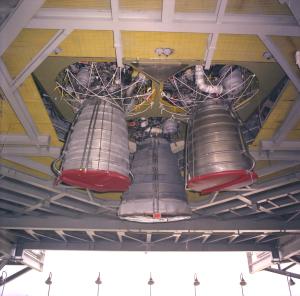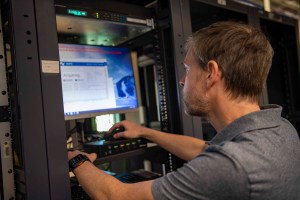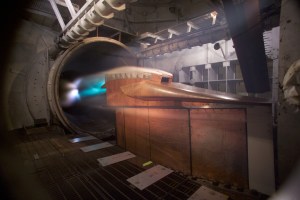How a Childhood Telescope Launched a NASA Career
- Christina Zeringue’s passion for astronomy was sparked at age 10 when she looked through her new telescope and saw the Moon and planets, inspiring her to pursue a career in space exploration.
- Zeringue worked as a contractor for NASA Stennis for 14 years before joining the organization full-time in 2011, initially working on facility systems safety engineering and later becoming chief of operations support division within the Safety and Mission Assurance Directorate.
- As the current chief safety and mission assurance officer at NASA Stennis, Zeringue is responsible for ensuring the safety and success of all site activities, including rocket propulsion testing and operation of the federal city, where she works with over 50 organizations to pursue individual missions.
- Zeringue’s work has supported NASA’s Artemis campaign to return astronauts to the Moon, contributing to RS-25 engine testing and Green Run testing of the SLS core stage ahead of the successful launch of Artemis I.
- Throughout her 28-year career at NASA Stennis, Zeringue emphasizes the importance of staying curious, investing in personal development, sharing expertise with others, and trying new things every day to achieve success in a career with NASA.
Christina Zeringue remembers being 10 years old, looking to the sky through her new telescope to view the Moon and planets on Christmas night. It opened her eyes to space and inspired her journey from the backyard to NASA’s Stennis Space Center near Bay St. Louis, Mississippi.
“I became fascinated with astronomy and learning about stars and constellations, the solar system and planetary orbits, solar and lunar eclipses, and challenging myself to find stars and nebula at different distances from Earth,” Zeringue said. “I was able to do and learn so much just from my own yard.”
She became obsessed with following the development and images produced from the Hubble Space Telescope, which launched on a space shuttle that featured three main engines tested at NASA Stennis.
Zeringue desired to learn more about the universe and find a way to be part of the effort to continue exploring. The Kenner, Louisiana, native ultimately made her way to NASA Stennis following graduation from the University of New Orleans.
As the NASA Stennis chief safety and mission assurance officer, Zeringue is responsible for safety and mission success of all site activities. These include both rocket propulsion testing and operation of the NASA Stennis federal city, where NASA and more than 50 federal, state, academic, public, and private aerospace, technology, and research organizations located onsite share in operating costs while pursuing individual missions.
“I have a broad range of responsibilities, which allows me to work with many talented people, pushes me to learn and develop new skills, and keeps my work interesting every day,” Zeringue said.
Zeringue’s work has supported NASA’s Artemis campaign to return astronauts to the Moon through her contributions to RS-25 engine testing and Green Run testing of NASA’s SLS (Space Launch System) core stage ahead of the successful launch of Artemis I.
The Pearl River, Louisiana, resident often encounters engineering or safety challenges where there is not a clear answer to the solution.
“We work together to understand new problems, determine the best course of action, and create new processes and ways to handle every challenge,” she said.
In total, Zeringue has worked 28 years at NASA Stennis – 14 as a contractor and 14 with NASA.
As a contractor, Zeringue initially worked as test article engineer for the Space Shuttle Main Engine Program. She followed that by serving as the quality systems manager, responsible for the quality engineering and configuration management of various engine systems, such as the space shuttle main engine, the RS-68 engine or Delta IV vehicles, and the J-2X upper stage engine.
Zeringue transitioned to NASA in 2011, first as a facility systems safety engineer and then as chief of the operations support division within the NASA Stennis Safety and Mission Assurance Directorate.
Her proudest career moment came early when working on final inspection of a new high pressure fuel turbopump. She noted a piece of contamination lodged behind the turbine shroud, which had been missed in previous inspections. Ultimately, the part was returned for disassembly before its next flight.
“While our post-test inspections can sometimes become routine, that day still stands out to me as a way that I really knew I directly contributed to the safety of our astronauts,” she said.
From the time Zeringue first looked through her new telescope, to her role as NASA Stennis chief safety and mission assurance officer, each moment along the way has contributed to the advice Zeringue shares with anyone considering a career with NASA. “Stay curious, invest in your own development, share your expertise with others, and try something new every day,” she said.

